-
brands

Featured Brands
search for a brand name
TOP BRANDS IN ALPHABETICAL ORDERsee all brands
AAurora World Adajio Astral Altra Acorn Alpineaire Andar Accoutrements Albanese Amish Origins Atlantic Coast Sports Asheville Tea Company Airtype Studio All Terrain Ai Root Candle Atkinson Candy Adventure Medical Anastasia Ann Clark American Classic Tea Accusharp Andre Prost Arcade Belt Co Appalachian Trail A And M Leather Andrews Mcmeel Antigravity Gear Altiplano Arkansas Anchor Hocking Andree By Unit Appalachian Football Club American Licorice Co All Good Aquatabsmore ABBlundstone Birkenstock Burt's Bees Blue Ridge Apiaries Benchmade Buck N Bear Knives Bay Pointe Badger Biscuit Head Butternut Mtn.Farm Barley Bones Binghamton Knitting Be Atlas Buck Knives Brooks Sports Bogs Boker Buff Bum Wraps Big Agnes Baums Fried Pecans Bison Designs Black Diamond Brittle Brothers Bearvault Bananagrams Bag Balm Bubble Thing Blackberry Patch Born Beantown Apparel Bearington Collection Black Dog Buena Onda Games Blossom Blue Ridge Knives Be Creations And Des Boston America Bob Mandala Bestech Knives Borealis Press Boston International Big Sky Brands Bacon And Company Belmont Peanuts Biolite Be Creations And Designs Bubble Tree Bourbon Foods Basic Spirit Books And Maps Banana Boatmore BCClay In Motion Colonel Littleton Carhartt Carstens Colonel Conk Columbia Case Knives Cackalacky Calhoun Bend Mill Channel Craft Charles Chips Chaco Clic Columbia River Knife C.C Collections Cotopaxi Charms Co. Charles Viancin Collins Lane Art Cobble Hill Puzzles Creative Crafthouse Cooking Pleasures Costa Del Mar Coldpruf Cottage Door Press Chase Candy Counter Art Castillo Knives Country Homes Crown Candy Carolina Kettle Chips Crazy Aarons Charlie B Camelbak Compendium Civivi Chala Handbags Ceaco Crazy Creek Calloway Mills Chums Ltd Columbia Sportswear Chattanooga Bakery Chapel Hill Toffee Carson Optical Cjrb Carve Designs Colorforms Cablz Cold Steel Colosseum Chia Pets Chef ` N Chaby International Capri Designs Candy Dynamics Crocodile Creek Cold Storage Chuckit Cudas Chad's Chaimore CDDarn Tough Socks Davis Hill Dansko Duke Cannon Deweys Bakery Dorfman Pacific Duck Head Doug Osborne Dot's Pretzels Danner Duer Dovetail Workwear D ` Vine Foods Dorval Trading Co Design Imports Dr.Bronner's Douglas Cuddle Toy Duncan Toys Deuter Doschers Candy Deejo Darrell Lea Demdaco Delorme Mappingmore DEEno Exofficio Elope Ebba Elf On The Shelf Earth Sky + Water, Llc Eagle Creek Ecoxgear Escape Ecco E Cloth Ethyl Esee Eeboo Eagles Wingsmore EFFiesta Farm To Feet Fox River Fire Buggz Fits Sock Co. Fairway Ferrara Pan Candy Co Frontier Soups Free Fly Fjall Raven Fluff And Tuff Fred And Friends Fish Hippie Fenix Freestyle Ford Gum Fontanini Fashion Plates Flag And Anthem Fox 40 Folkmanis Filson Flexcutmore FGGci Outdoor Gsi Outdoors Groove Life Green Toys Gitzell Fairtrade Gerrit J Verburg Gerber Goetzes Gregory Grip6 Green Street Guyot Designs Grayl Grand Trunk Gooseberry Patch Giftcraft Go Girl Garden Works Gourmet International Grabber Warmers Gibbs Smith Goal Zero Ggb Candies Geocentral Gear Aidmore GHHelms Candy Co Hydro Flask Hey Dude Hoka One One Hammonds Candies Huk Helle Hershey Heritage Puzzle Hultsbruk Heat Holders Hasbro Hatley Hachette Hydrapak Hello Mello Lounge Wear Howler Brothers Hog Wild High Cotton Hip Signs Helly Hansen House Of Marbles Hungry And Howlin Helinox Habitat Heroclip Hot Tips Hf Publishingmore HJJameson Woodworks Jetboil Jelly Belly Candy Co Joy Susan Just Jump It Jerry Matthews Joules Jacobson Hat Co Joey Henson Art Just Born Jay Mac Sports Ja Rumore JKKuhl Keen Kershaw Knives Karesuando Kniven Kraft Tyme Klutz Kids Preferred Kelty Pack Kork Ease Kavu Kabar Klean Kanteen Kay Dee Keysmart Kizer Cutlery Katadyn Kurt Adler Kimmie Candy Kut Kuju Coffeemore KLLodge Lulu- B Legacy Hats Lowa L.L.Bean Lazy One Leatherman Lems Shoes Life Is Good La Mer Luxe Lintex Linens Loftus Laguiole Durand Lantern Press Land Of Dough Leki Lil Sucker L ` Artiste Little Brown Co Lifestraw Loksak Lansky License- 2- Play Llc Life Outside Sticker Comore LMMast General Store Merrell Mr Bird Mason Cash M.H.Bertucci Mountain Khakis Mpowerd Msr Memaws Mount Inspiration Michaelian Home Mountain House Mystery Ranch Molly And You Mattel Marmot Mast 1883 Muddy Pond Marsh Hen Mill Mountainsmith Melissa And Doug Mice On Main Matador Maple Landmark Marbles Manhattan Toy Moonpie Mcgowan Mimis Mountain Mixes Metal Earth Mountain Melodies Mountaineers Books Marich Macmillan Madd Capp Games My Pet Enterprises Moonshine Marttiini Murphys Naturals Master Pieces Puzzle Modgy Mayberry Bbq Sauce Myra Bag Mata Traders Molly Bracken Mars Wrigley Millymook Dozer Master Toys Mary Lake_thompson Monroe Hardware Mora Morinaga Mast Brand Muddy Bites Mederer Usa Mondelez Multipetmore MNNo Kidding Naylor Forge Nite Ize North River Nebo National Geographic Nordic Company Inc Natural Life Now Designs Nalgene Nature Cast Metalworks Nordic Ware Noso Patches Nexus Foods Incmore NOOboz On Running Old Mill Of Guilford Olukai Old Friend Slippers Old Mule Dipping Osprey Packs Olde Colony Bakery Oofos Oak Alley Farms Old Ranch Old Hickory Oliver Pluff And Company Opinel Oneill Outdoor Edge Ouray Old School Brand Over Under Olde Virden's Outdoor Research Original Gourmet Omega Screen Printsmore OPPatagonia Pbj Palmetto Farms Play Monster Poppy Parris Manufacturing Perry's Enterprises Primitive Woodsman Perfect Petzz Pikolinos P Graham Dunn Puffin Perky Pet Primrose Pearson Ranch Jerky Play Visions Pressman Toy Prana Primitives By Kathy Petzl Pressbox Peter Pauper Press Professor Puzzle Pop Rocks Pisgah Map Company Perfetti Van Melle Platypus Peking Handicraft Paricon Prandi Pez Candy Co Pocket Bellows Pacifica Packtowl Pendleton Pale Blue Earthmore PRRoyall Lyme Raven's Nest Rocket 9 Rosebud Ruffwear Royal Robbins Rumpl Richardson Rock Em Radio Flyer Rubik's Cube Red Carpet Studios Ruike Ruby Road Rough Rider Rab R.L.Scott Knives Romper Room Rm Palmer Rigwa Reflektmore RSSavannah Bee Salisbury Pewter Schylling Smartwool Socksmith Superfeet Spin Master Sog Snoozies Sconza Sperry Top- Sider Sunflower Food Co. Stanley Scout Curated Wears Slinky Stuart Nye Jewelry Spangler Candy Co Swiss Army Sienna Sky Stonewall Kitchen Swiftwick Spyderco Sorel Stroup Knives Sea To Summit Salomon Spirograph Sun Streamlight Sherpa Schrade Skybar Candy Sawyer Stetson Sawyer's Mill Southern Recipe Sp Enterprises Smarties Santoki Slip- N- Snip Simply Southern Spunky Pup Steel Will S.S.Adams Co. Southern Fried Cotton Sterling Sweetworks Sourcebooks Spin- Balls Sweet Candy Co Skye's The Limit Soda Pup Standard Candy Co Sunday Afternoons Stephan Baby Squirrel Nut Butter Sabre Sugarox Candy Studio Skeeter Hawk Sterling Ropemore STTilley Toysmith Troutman Chair Tk Obriens Topo Athletic True South Puzzle Co Two Old Goats Trophy Music The North Face Tervis The Printed Image The Artist Jay Two Bros Bows Therm- A- Rest The Landmark Project Tootsie Roll Think Fun Tedco Timex Teva Tiki Toss Taylor Dry Goods The Duck Company Tin Box Toor Knives The Map Shop Top Of The World Toad And Co Tribal Sportswear True Utility Taylor Old Bond St. Ty Inc Trish Brown The Original Toy Co Taos Footwear Taylor Environmental The Stickery Tortuga Imports Tru Fru Toobmore TWWinkler Knives Wind River Chimes Wounded Warrior World's Softest Willow Tree Wool Novelty Worlds Smallest Warthog Warmies Wind And Willow Wild Republic World Candies Waterford Press White River Knife And Tool Wet- It Woox Waboba Wildwood Productions World Import Company, Inc Wilfred Lee Booksmore W -
categories

Top Categories
CLOSE MENUMade In USA
Food Home & Hearth Personal Care Clothing & Accessories Candy Cast Iron Calendars, Cards, Journals, & Stickers Knives Outdoor Gear Pets Toys Sale & ClearanceWomen
Accessories Curvy Dresses Footwear Outerwear & Fleece Baselayers Leggings & Capris Pants Shirts & Tops Shorts Skirts & Skorts Sleepwear Sweaters & Midlayers Swimwear T-Shirts & Sweatshirts Travel Clothing Workwear Sale & ClearanceMen
Accessories Baselayers Footwear Outerwear & Fleece Pants Shirts Shorts Sleepwear Swimwear Sweaters & Midlayers T-Shirts & Sweatshirts Travel Clothing Workwear Sale & ClearanceCandy
International Fruity & Fun Vegan Novelty Gum Mints Candy Bars Candy Gifts Caramels, Nougats, & Taffy Chocolate Gummies Hard Candy & Lollipops Hot Candy Jelly Beans Licorice Mast Candy Collection Nuts & Coconut Old Fashioned Favorites Sour Candy Holiday Candy Sale & ClearanceHome & Hearth
Garden & Outdoor Living Home Decor Kitchen Cleaning Furniture Music Pottery Reusable Totes Sale & ClearanceMast Collection
Candy Clothing & Accessories Food Mugs & Tumblers Ornaments Pottery Reusuable Totes Whatnots Sale & Clearance -
stores

Original - Valle Crucis close menu
visithours
mon9AM - 6PM
tue9AM - 6PM
wed9AM - 6PM
thu9AM - 6PM
fri9AM - 6PM
sat9AM - 6PM
sun11AM - 6PM
Annex - Valle Crucis close menu
visithours
mon10AM - 6PM
tue10AM - 6PM
wed10AM - 6PM
thu10AM - 6PM
fri10AM - 6PM
sat10AM - 6PM
sun11AM - 6PM
Asheville close menu
visithours
mon10AM - 8PM
tue10AM - 8PM
wed10AM - 8PM
thu10AM - 8PM
fri10AM - 9PM
sat10AM - 9PM
sun11AM - 6PM
Boone close menu
visithours
mon10AM - 6PM
tue10AM - 6PM
wed10AM - 6PM
thu10AM - 6PM
fri10AM - 7PM
sat10AM - 7PM
sun11AM - 6PM
Columbia close menu
visithours
mon10AM - 6PM
tue10AM - 6PM
wed10AM - 6PM
thu10AM - 6PM
fri10AM - 8PM
sat9AM - 8PM
sun11AM - 6PM
Greenville close menu
visithours
mon10AM - 8PM
tue10AM - 8PM
wed10AM - 8PM
thu10AM - 8PM
fri10AM - 9PM
sat10AM - 9PM
sun11AM - 6PM
Hendersonville close menu
visithours
mon10AM - 6PM
tue10AM - 6PM
wed10AM - 6PM
thu10AM - 6PM
fri10AM - 7PM
sat10AM - 7PM
sun11AM - 6PM
Knoxville close menu
visithours
mon10AM - 7PM
tue10AM - 7PM
wed10AM - 7PM
thu10AM - 7PM
fri10AM - 9PM
sat10AM - 9PM
sun11AM - 6PM
Roanoke close menu
visithours
mon10AM - 6PM
tue10AM - 6PM
wed10AM - 6PM
thu10AM - 6PM
fri10AM - 8PM
sat10AM - 8PM
sun11AM - 6PM
Waynesville close menu
visithours
mon10AM - 6PM
tue10AM - 6PM
wed10AM - 6PM
thu10AM - 6PM
fri10AM - 7PM
sat10AM - 7PM
sun11AM - 6PM
Winston-Salem close menu
visithours
mon10AM - 6PM
tue10AM - 6PM
wed10AM - 6PM
thu10AM - 6PM
fri10AM - 8PM
sat10AM - 8PM
sun11AM - 6PM
-
in-store pickup

Original - Valle Crucis close menu
selecthours
mon9AM - 6PM
tue9AM - 6PM
wed9AM - 6PM
thu9AM - 6PM
fri9AM - 6PM
sat9AM - 6PM
sun11AM - 6PM
Annex - Valle Crucis close menu
selecthours
mon10AM - 6PM
tue10AM - 6PM
wed10AM - 6PM
thu10AM - 6PM
fri10AM - 6PM
sat10AM - 6PM
sun11AM - 6PM
Asheville close menu
selecthours
mon10AM - 8PM
tue10AM - 8PM
wed10AM - 8PM
thu10AM - 8PM
fri10AM - 9PM
sat10AM - 9PM
sun11AM - 6PM
Boone close menu
selecthours
mon10AM - 6PM
tue10AM - 6PM
wed10AM - 6PM
thu10AM - 6PM
fri10AM - 7PM
sat10AM - 7PM
sun11AM - 6PM
Columbia close menu
selecthours
mon10AM - 6PM
tue10AM - 6PM
wed10AM - 6PM
thu10AM - 6PM
fri10AM - 8PM
sat9AM - 8PM
sun11AM - 6PM
Greenville close menu
selecthours
mon10AM - 8PM
tue10AM - 8PM
wed10AM - 8PM
thu10AM - 8PM
fri10AM - 9PM
sat10AM - 9PM
sun11AM - 6PM
Hendersonville close menu
selecthours
mon10AM - 6PM
tue10AM - 6PM
wed10AM - 6PM
thu10AM - 6PM
fri10AM - 7PM
sat10AM - 7PM
sun11AM - 6PM
Knoxville close menu
selecthours
mon10AM - 7PM
tue10AM - 7PM
wed10AM - 7PM
thu10AM - 7PM
fri10AM - 9PM
sat10AM - 9PM
sun11AM - 6PM
Roanoke close menu
selecthours
mon10AM - 6PM
tue10AM - 6PM
wed10AM - 6PM
thu10AM - 6PM
fri10AM - 8PM
sat10AM - 8PM
sun11AM - 6PM
Waynesville close menu
selecthours
mon10AM - 6PM
tue10AM - 6PM
wed10AM - 6PM
thu10AM - 6PM
fri10AM - 7PM
sat10AM - 7PM
sun11AM - 6PM
Winston-Salem close menu
selecthours
mon10AM - 6PM
tue10AM - 6PM
wed10AM - 6PM
thu10AM - 6PM
fri10AM - 8PM
sat10AM - 8PM
sun11AM - 6PM
-
blog

latest blog posts see all blog posts CLOSE MENU
-
April 11, 2024 20 minute READ
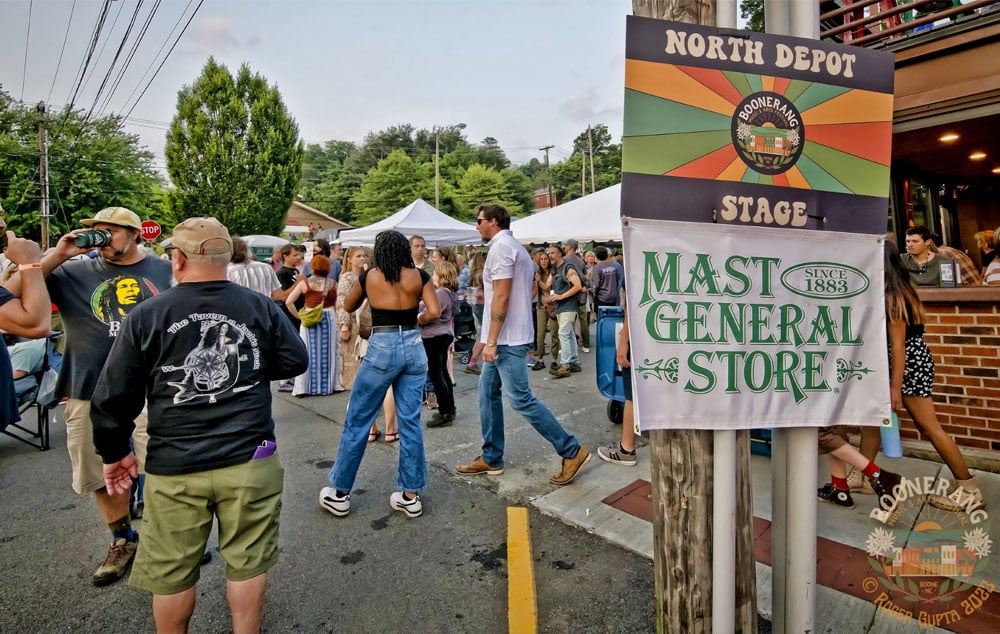
It's Go Time: Spring and Summer Events 2024
If it’s true, as they say, that seeing is believing, then we at Mast Store would like to propose another entry to your quip collection: Doing is moving. “Doing” not only requires movement - “doing” moves you both physically and emotionally. ...read more
 Local Flavor | Mast Family Favorites | Travel
Local Flavor | Mast Family Favorites | Travel
 All
All
-
April 3, 2024 13 minute READ
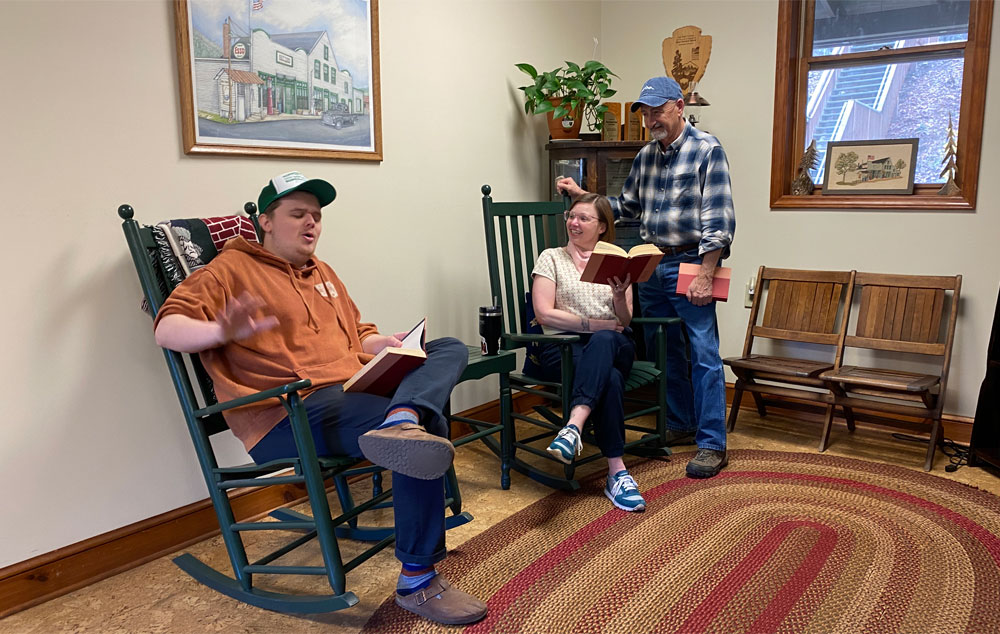
What's on Your Reading List?
What is a library? It’s a big building with lots of books in it. But wait, it’s so much more. The library is a gateway to your wildest dreams, a place to learn, a place to imagine, a place to make friends. Today’s libraries are repositories of books, but they also are places to get help to learn to read or improve your reading, to improve your math skills, to listen to a performance by a string quartet, to watch a movie, to refine your crafting skills, and to gather with fellow writers. Yes, libraries are SO much more. ...read more
 Adventure | Inspiration | Mast Family Favorites
Adventure | Inspiration | Mast Family Favorites
 All
All
-
March 29, 2024 5 minute READ
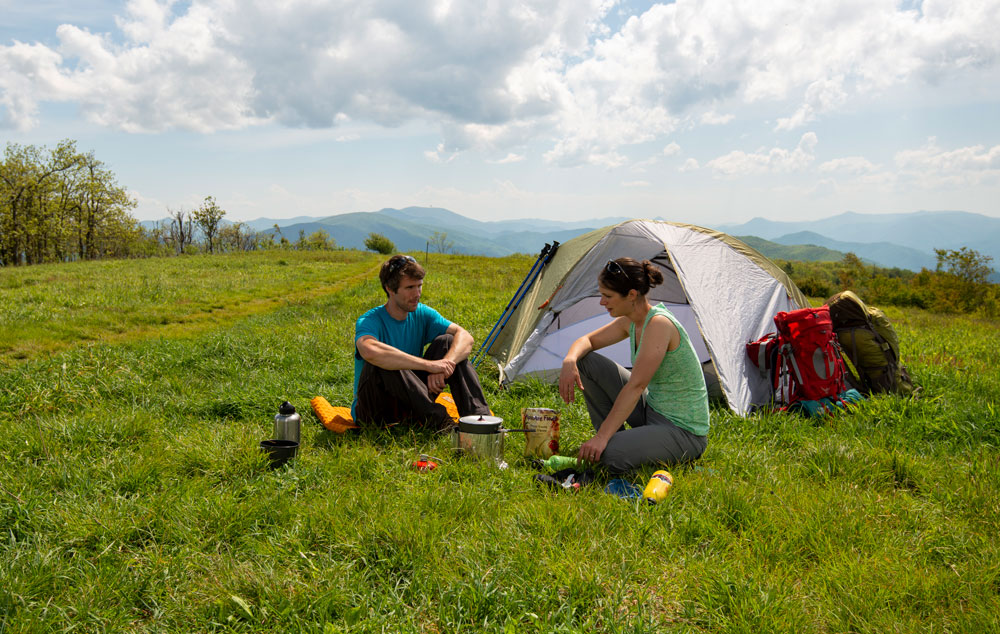
Leave No Trace Made Easy
What “spells” success on any outdoor adventure? R-E-S-P-E-C-T.
Leave No Trace is a set of seven principles that guide and remind all outdoor lovers to leave nature as they found it. These tips help explorers of all skill levels to plan ahead for their trip, be considerate of wildlife as well as other hikers and campers, and enjoy their excursion safely and responsibly all with the goal of minimizing their impact on the environment. Basically, it boils down to respecting the outdoors so that others – including future generations – can enjoy it, too! ...read more Adventure | Inspiration
Adventure | Inspiration
 All
All
Favorite blog posts CLOSE MENU
-
November 30, 2023 10 minute READ

It Just Would Not Be the Holidays Without
... Our favorite foods! Food is universal because everybody’s got ta eat! And the last two months of the year are filled with more than their fair share of family meals, work gatherings, special outings to favorite restaurants, tins filled with homemade cookies and fudge, and the anticipation of food traditions handed down from generation to generation ...read more
 At Home | Recipes
At Home | Recipes
 All
All
-
May 26, 2023 7 minute READ
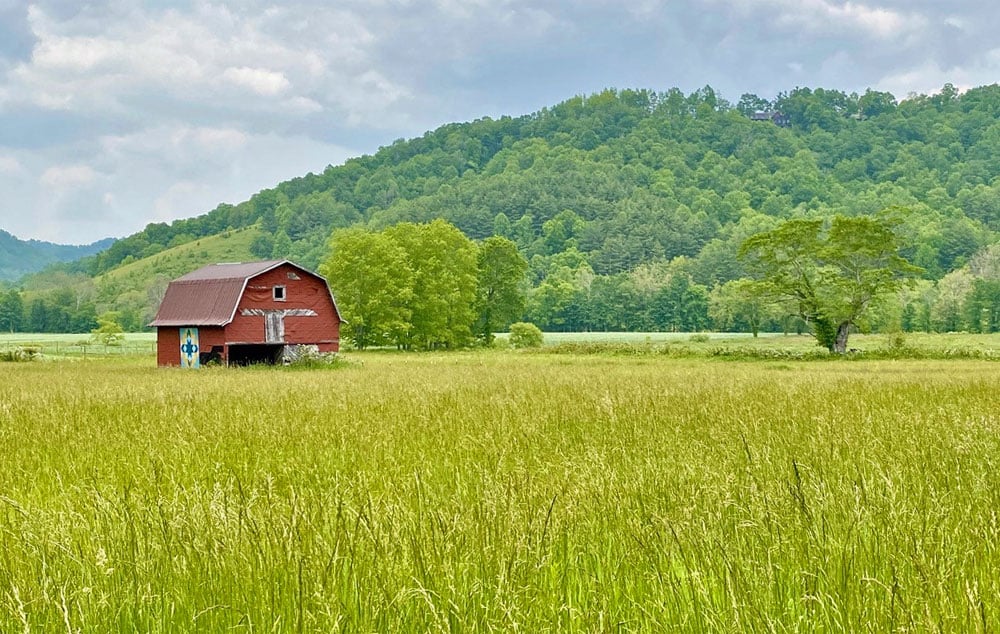
John and Faye Cooper: Why We Support Land Trusts
Even before we bought the Mast General Store, we were taken by the beauty of Valle Crucis. We’ve heard people describe the drive out Broadstone Road as traveling through a time portal. In the 1970s, fields in the river bottoms would be filled with tobacco, cabbage, or high with hay to feed cattle that were grazing in the summer pasture. ...read more
 All
All
-
April 20, 2023 5 minute READ

Mark Earth Day with a Plan for Action
The lucky few who have seen the Earth from a different perspective – astronauts - all echo the same viewpoint upon their return. Yuri Gagarin, a Russian cosmonaut and the first human to go to space, commented, “Orbiting Earth in the spaceship, I saw how beautiful our planet is. People, let us preserve and increase this beauty, not destroy it.”
 Behind the Scenes | Inspiration
Behind the Scenes | Inspiration
 All
All
CLOSE MENU
all Original - Valle Crucis Annex - Valle Crucis Asheville Boone Columbia Greenville Hendersonville Knoxville Roanoke Waynesville Winston-Salem location
location -
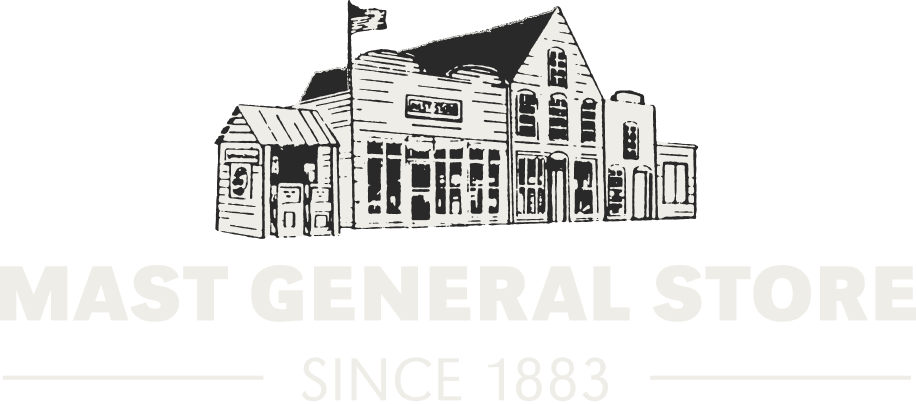

 Sign In
Sign In
 Go to My Account
Go to My Account Password Reset
Password Reset Email Preferences
Email Preferences Order History
Order History Address Book
Address Book Mailing List
Mailing List Wish List
Wish List Sign Out
Sign Out

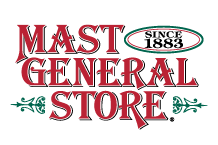




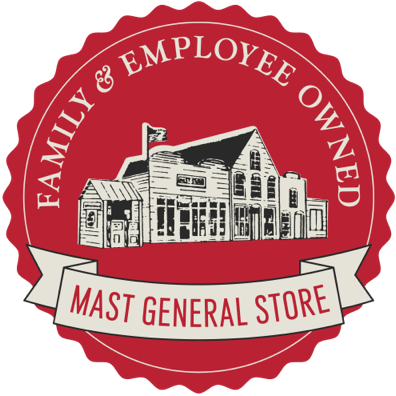

 828-963-6511
828-963-6511 directions
directions Parking
Parking





















 history
history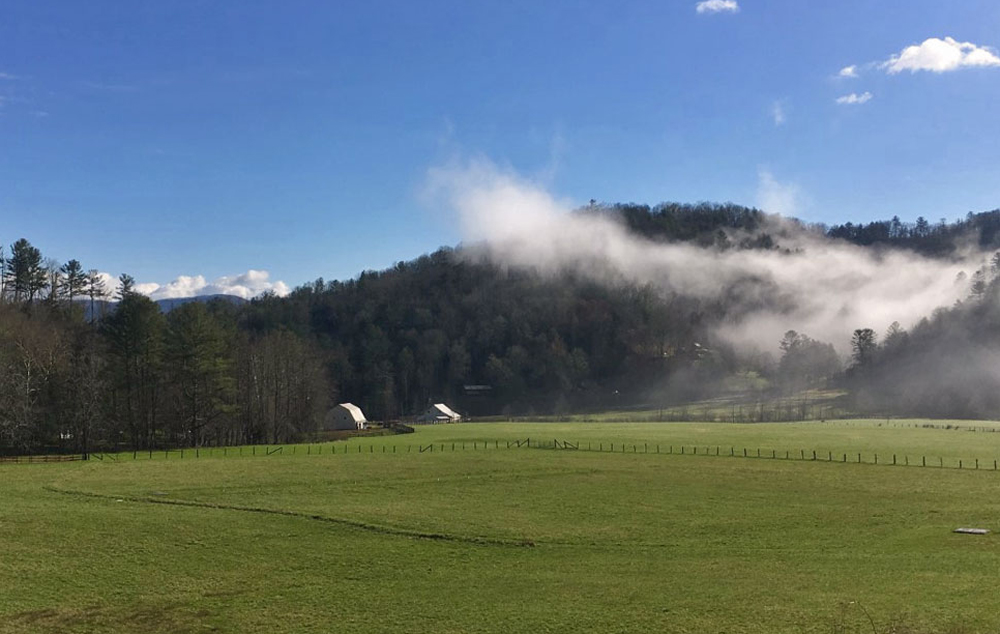
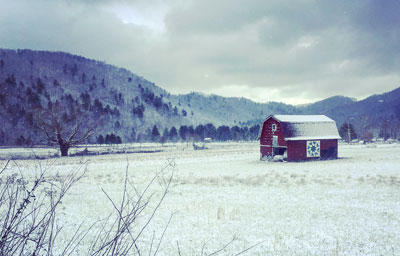 As a for instance, a local group may want to provide a greenway along a riverbank that would link two parks together. There are a couple of ways they can accomplish their walkway. First, they can outright purchase the land and put restrictions on its use now and in the future. In the second way, they negotiate an easement with the current owner of the land, which will give the greenway group permission to use the land within parameters, and the property owner retains possession of the land. He may or may not receive a tax credit for his easement, but we all will benefit from the owner’s generosity.
As a for instance, a local group may want to provide a greenway along a riverbank that would link two parks together. There are a couple of ways they can accomplish their walkway. First, they can outright purchase the land and put restrictions on its use now and in the future. In the second way, they negotiate an easement with the current owner of the land, which will give the greenway group permission to use the land within parameters, and the property owner retains possession of the land. He may or may not receive a tax credit for his easement, but we all will benefit from the owner’s generosity.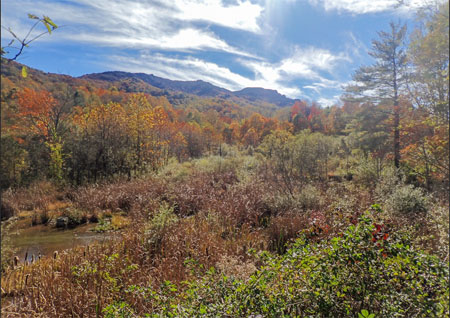 Sometimes the scenic view and open space are more valuable than new development. Preserving wetlands provides habitat for wildlife and secures clean water. State and national parks often grow their boundaries by working with conservancy groups. During the pandemic, we all learned how important these open areas are for us to find refuge to recharge our batteries and to gain perspective.
Sometimes the scenic view and open space are more valuable than new development. Preserving wetlands provides habitat for wildlife and secures clean water. State and national parks often grow their boundaries by working with conservancy groups. During the pandemic, we all learned how important these open areas are for us to find refuge to recharge our batteries and to gain perspective.